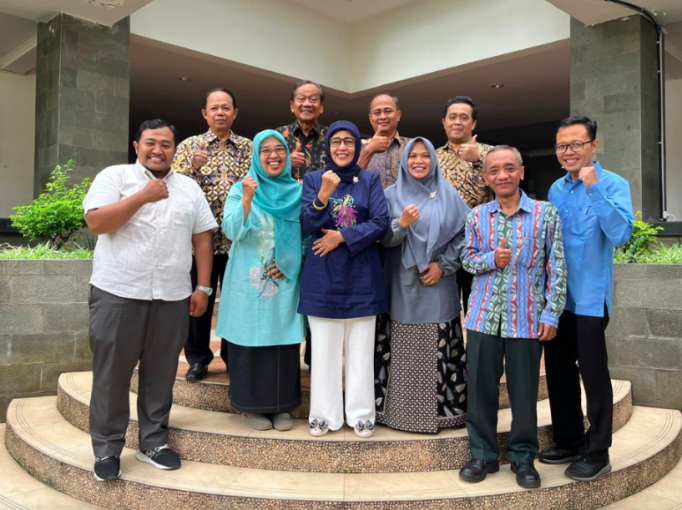
Yogyakarta, 4/2/2025 – The Middle Eastern Cultural Studies Program (KBTT) at Universitas Gadjah Mada held a Coordination Meeting for the even semester of 2024/2025. This meeting was attended by all lecturers, including: Prof. Dr. Sangidu, M.Hum., Prof. Dr. Syamsul Hadi, S.U., M.A., Prof. Dr. Fadlil Munawwar Manshur, M.S., Prof. Dr. Fadlil Munawwar Manshur, M.S., Prof. Dr. Lasiyo, M.A., M.M., Prof. Dr. Siti Mutiah Setiawati, M.A., Dr. Zulfa Purnamawati, M.A., Dr. Mahmudah, M.Hum., Dr. Arief Ma’nawi, M.Hum., Dr. Arifuddin, Lc. M.A., and Dr. Imam Wicaksono, Lc., M.A. The meeting commenced with remarks from the Head of the Intercultural Department, Prof. Dr. Sangidu, M.Hum. He emphasized the significance of collaboration among lecturers to create a better future for the study program and the students in the Middle Eastern Cultural Studies Program. “We must fulfill this teaching mandate to the best of our abilities for our collective progress,” stated Prof. Sangidu. This message aligns with the goals of the Sustainable Development Goals (SDGs), particularly in supporting quality education as a foundation for sustainable development.
The meeting continued with a session led by Dr. Mahmudah, M.Hum., the Secretary of the Intercultural Department, focused on the lecture system. The purpose of this session was to ensure that all participants shared a common understanding of the lecture system and the learning strategies that will be implemented in the upcoming semester. Attendees engaged in intensive discussions to design innovative teaching methods that cater to student needs and respond to global developments. It was agreed that strong collaboration among lecturers is essential for producing competent and competitive graduates successfully.
The Middle Eastern Cultural Studies Program aims to enhance its contribution to the Sustainable Development Goals (SDGs) through this coordination meeting, particularly focusing on quality education (SDG 4) and partnerships to achieve the goals (SDG 17). The collaboration among lecturers is expected to develop a curriculum that is not only academically focused but also promotes sustainable values. This initiative demonstrates the Middle Eastern Cultural Studies Program’s commitment to nurturing a generation capable of effecting positive change within the global community.
[Public Relations Master of Middle East Faculty of Cultural Sciences FIB UGM, Nafila Azzahra]

